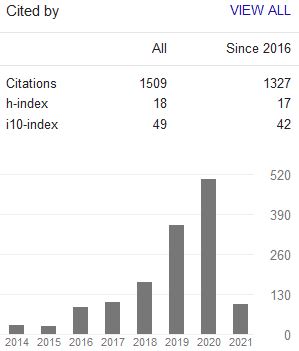PRESERVING ARAB TRADITION: The Cultural Expression of Habsyian in East Kalimantan
Abstract
Keywords
Full Text:
PDFReferences
Ali, H.A Mukti. Ilmu Perbandingan Agama Suatu Pembahasan Tentang Metode Dan Sistem. Jakarta: Tinta Mas, 1993.
Asy’arie, Musa. Islam Dan Iptek Dalam Kehidupan Manusia, Suatu Pendekatan Filosofis. Jakarta: Paper for seminar in University of Indonesia, 1995.
Anshari, Endang Saifuddin. Ilmu Filsafat dan Agama. Surabaya: Bina Ilmu, 1987.
Amaan, Isrofil. “Studi Normatif Pendidikan Islam Multikultural.” ISLAMICA, Vol 4 (2010)
Abdullah. M. Amin. “Demensi Etis Teologis Dan Etis Antropologi Dalam Pembangunan Berwawasan Lingkungan.” Al-Jamiah, No. 49 (1992)
Bakri, Hasbullah. Di sekitar Skolastik Islam. Jakarta: Tintamas, 1973.
Daudi, Abu. Transliterasi Kitab Tuhfatur Raghibin. Martapura: n.p., 2000.
Danursiri. Epistemologi Dalam Tasawuf Igbal. Yogyakarta: Pustaka Pelajar, 1996.
Fazlurrahman. Islam. Bandung: Mizan, 1984.
Koentjaraningrat. Pengantar Antropologi. Jakarta: Aksara Baru, 1974.
Mujiburrahman. “Aqidah dan Realitas Masyarakat Banjar.” Tashwirul Afkar, No. 26 (2008).
Syukur, Suparman. Epistemologi Islam Skolastik Pada Pemikiran Islam Modern. Yogyakarta: Pustaka Pelajar, 2007.
Suwandi. “Oreintasi Kurikulum Integratif-Interkonektif Menuju Pencaoaian Sasaran.” Jurnal Penelitian Agama, Vol XVII, No. 1 (Januari-April, 2008).
Qadir, C. A. Filsafat Dan Ilmu Pengetahuan Islam. Jakarta: Yayasan Obor, 1991.
Siddik, Abdullah. Islam Dan Ilmu Pengetahuan. Kuala Lumpur: Dewan Bahasa Dan Pustaka, Kementerian Pelajar Malaysia, 1994.
Ali, Sodikin. Antropologi Al-Qur’an, Model Dialektika Wahyu Dan Budaya. Jakarta: Ar-Ruzz Media, n.d.
Wahid, Abdurrahman. Kontektualitas Doktrin Dalam Islam. Jakarta Paramadina, 1995.
Syarif, M.M. Dialektika Islam; Alam Pikiran Islam. Bandung: CV Diponogoro, 1970.
DOI: 10.15642/JIIS.2017.11.1.247-266
Refbacks
- There are currently no refbacks.
Indexed by:
Journal of Indonesian Islam (ISSN 1978-6301 and E-ISSN 2355-6994) is published by the Postgraduate Program (PPs) and the Institute for the Study of Religion and Society (LSAS), State Islamic University (UIN) of Sunan Ampel Surabaya.
Journal of Indonesian Islam by http://jiis.uinsby.ac.id/index.php/JIIs/index is licensed under a Creative Commons Attribution-ShareAlike 4.0 International License.
Copyright ©2020 State Islamic University (UIN) of Sunan Ampel Surabaya. Powered by Public Knowledge Project OJS.







